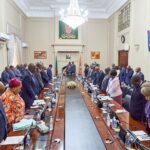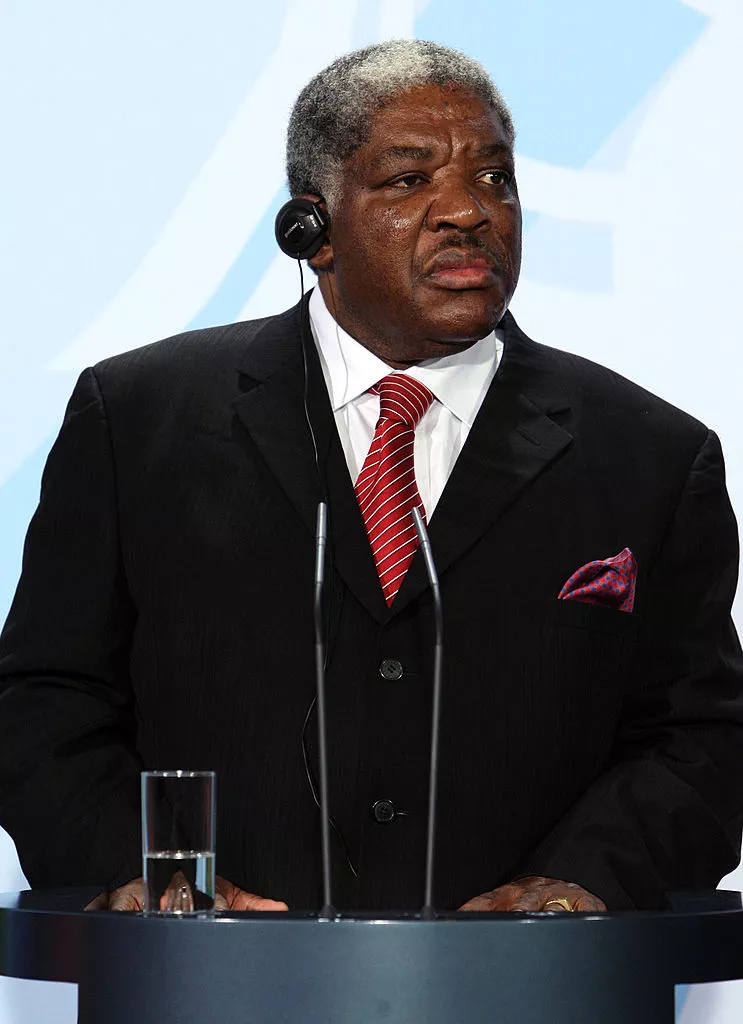Levy Mwanawasa, Zambia’s third President, is celebrated for his tenure marked by vigorous anti-corruption efforts and economic reforms. Ascending to the presidency in the early 2000s, Mwanawasa’s leadership left a profound impact on Zambia’s political and economic landscape. His commitment to combating corruption and fostering democratic governance positioned him as a notable figure in the country’s history. Here are 20 key aspects of Levy Mwanawasa’s life and presidency that shed light on his contributions and legacy.
1. Early Life and Education
Born on September 3, 1948, in Mufulira, Zambia, Levy Mwanawasa pursued higher education in law. He attended the University of Zambia, where he earned his law degree, which later informed his approach to governance and anti-corruption efforts.
2. Legal and Political Career
Before becoming President, Mwanawasa had a distinguished legal career. He was a practicing lawyer and served as Attorney General of Zambia from 1991 to 1994, where he gained a reputation for his integrity and commitment to justice.
3. Rise to Presidency
Mwanawasa was elected as the third President of Zambia on January 2, 2002, succeeding Frederick Chiluba. His election marked a significant shift in Zambia’s political landscape, promising reform and anti-corruption measures.
4. Anti-Corruption Crusade
One of Mwanawasa’s hallmark policies was his aggressive stance against corruption. He pursued several high-profile investigations and prosecutions against officials accused of embezzlement and mismanagement, aiming to restore public trust in government institutions.
5. Economic Reforms
Mwanawasa implemented economic reforms that aimed to stabilize Zambia’s economy. His administration focused on debt relief, infrastructure development, and economic diversification, contributing to a period of economic growth and increased investor confidence.
6. Health Initiatives
Mwanawasa’s presidency was notable for its efforts to address public health issues. He prioritized combating HIV/AIDS and improving healthcare infrastructure, which were significant challenges in Zambia at the time.
7. Commitment to Good Governance
Mwanawasa promoted transparency and good governance, advocating for institutional reforms to strengthen democratic processes and reduce corruption. His administration worked to improve the accountability of public officials and institutions.
8. Role in Regional Politics
Mwanawasa was an active participant in regional diplomacy. He played a role in mediating conflicts in neighboring countries and contributed to discussions on regional integration and stability.
9. Legal Reforms
During his tenure, Mwanawasa introduced several legal reforms aimed at enhancing the judicial system’s independence and effectiveness. These reforms sought to ensure fair and transparent legal processes.
10. Foreign Relations
Mwanawasa’s foreign policy was characterized by a focus on strengthening Zambia’s relations with both African neighbors and the international community. His administration sought to position Zambia as a stable and reliable partner in regional and global affairs.
11. Economic Challenges
Despite his reform efforts, Mwanawasa faced economic challenges, including global economic downturns and fluctuating commodity prices. His administration had to navigate these difficulties while maintaining its reform agenda.
12. Commitment to Education
Mwanawasa’s government invested in education, emphasizing the need to improve access to quality schooling and educational resources. His administration worked to enhance educational outcomes as a foundation for long-term development.
13. Response to Drought and Food Security
Zambia experienced droughts and food security issues during Mwanawasa’s presidency. His administration took steps to address these challenges through agricultural support programs and international assistance.
14. Political Opposition and Criticism
Mwanawasa faced criticism from political opponents and civil society groups, particularly concerning his handling of dissent and political freedoms. Despite this, his administration remained focused on its reform and anti-corruption goals.
15. Health Issues
Mwanawasa’s presidency was interrupted by health problems. In 2008, he suffered a stroke, which significantly affected his ability to perform presidential duties. He continued to face health challenges until his death in 2008.
16. Legacy of Integrity
Levy Mwanawasa is remembered for his legacy of integrity and commitment to fighting corruption. His efforts to promote good governance and address corruption left a lasting impact on Zambia’s political culture.
17. Succession and Political Transition
Following Mwanawasa’s death in August 2008, his Vice President, Rupiah Banda, succeeded him. Mwanawasa’s passing marked a period of political transition and reflection on his contributions to Zambian politics.
18. International Recognition
Mwanawasa received international recognition for his anti-corruption efforts and commitment to economic and political reforms. His leadership was acknowledged by various international organizations and leaders.
19. Posthumous Honors
After his death, Mwanawasa was honored posthumously for his contributions to Zambia’s development and governance. Various institutions and communities recognized his impact on the country’s progress.
20. Enduring Influence
Levy Mwanawasa’s influence endures in Zambia’s political and economic discourse. His presidency is often cited as a period of significant reform and a model for combating corruption in the region.
Levy Mwanawasa’s presidency was a defining era in Zambia’s history, characterized by his steadfast commitment to anti-corruption, economic reform, and good governance. His efforts to combat corruption and promote transparency laid the groundwork for future political and economic developments in Zambia. Despite facing numerous challenges, Mwanawasa’s legacy of integrity and reform continues to resonate, reflecting his significant contributions to the country’s progress and stability.






